Is Your Office Quietly Leaking Data?
Cybersecurity isn’t just about firewalls and software; it’s about habits. And as a manager or someone who leads a team in your company, you play a pivotal role in shaping those habits across your team.
Even the most advanced security systems can be undermined by everyday choices. That’s why fostering a culture of cyber awareness is essential. When employees consistently make smart decisions, it reinforces the protections your MSP has in place and reduces the risk of costly breaches.
This post outlines six simple habits you can encourage across your team to strengthen your digital defenses without adding complexity or slowing anyone down.
Habit #1: Use Strong, Unique Passwords
Reusing the same password across accounts might feel convenient, but it creates a major security risk. If just one account gets compromised, the rest could follow.
The safer choice is to use a different password for each login. Go for combinations that are long and hard to guess. Aim for at least 12 characters, using a mix of letters, numbers, and symbols.
To make things easier for your team, consider using a password manager. These tools securely store your credentials and make logging in quick and simple without relying on memory alone.
Skip writing passwords down or saving them in your browser’s autofill. While these shortcuts might seem harmless, they increase your exposure to cyber threats.
Habit #2: Turn On Multi-Factor Authentication (MFA)
Even the strongest password can be cracked or stolen. Multi-factor authentication (MFA) adds a second layer of protection by requiring an extra step to verify your team’s identity, like a code sent to the phone or a prompt from an authentication app.
This small step makes it much harder for anyone to access your team’s accounts without permission, even if they know the password. It’s especially important for email, cloud storage, and any tools that store sensitive business data.
Make sure MFA is turned on for work and connected personal accounts. Most platforms offer it as a quick option in the settings.
Your team’s not sure where to start? Let us know. We can walk you through it.
Habit #3: Lock Your Devices When You Step Away
It only takes a few seconds for someone to access a computer if it’s left unattended. Whether in the office, a coworking space, or a coffee shop, encourage your team to make it a habit to lock their screen every time they walk away.
This step protects your emails, files, and other sensitive information from unauthorized access. Even if you trust the people around you, it’s better to be safe than sorry.
Use keyboard shortcuts to lock the screen quickly or set the device to lock automatically after a short period of inactivity. These settings can go a long way in keeping everyone’s data secure.
Habit #4: Be Cautious with Email and Messaging Links
Phishing scams are among the most common ways cybercriminals trick people into giving up sensitive information. These scams often come in the form of emails or messages that look legitimate but contain harmful links or attachments.
Train your team to always take a moment to review the sender’s email address and look for odd language or urgent requests. Be especially wary of messages asking you to click a link, enter login credentials, or download a file. If something feels off, don’t interact with it.
When in doubt, report suspicious messages to your IT team or MSP. It’s better to double-check than to accidentally fall for a scam. Our team can take a closer look and let you know whether it’s safe.
Habit #5: Keep Your Software and Devices Updated
Outdated software can expose everyone’s devices to known security flaws. Cybercriminals often take advantage of systems that haven’t been updated, since they know exactly where to strike.
Make it a habit to check for updates regularly. This includes the operating system, web browser, antivirus software, and any work-related apps. Whenever possible, turn on automatic updates to stay protected without the extra effort.
Your MSP likely takes care of updates on company-managed systems. But it’s still important to keep personal devices updated, especially if you use them to check work email or access shared files.
Habit #6: Report Anything That Seems Suspicious
Finally, if something feels off, it’s always better to speak up. Cybersecurity thrives in a culture of openness. If something feels off, a strange pop-up, login alert, or odd email reporting it early can make all the difference.
Create a safe space for:
Asking questions without fear of judgment
Reporting even minor concerns
Reinforcing that no issue is too small to flag
Your MSP is there to investigate and provide peace of mind.
Leading the Way to a Safer Workplace
As a leader, your influence sets the tone. By modeling good habits and encouraging your team to do the same, you build a stronger, safer digital environment.
Cybersecurity isn’t just an IT issue; it’s a shared responsibility. And with the right habits in place, your team becomes a powerful line of defense.
Need help rolling out these practices or want to explore team-wide training? We at Total Secure Technology are here to support you every step of the way.
Ready to Take IT Off Your Worry List?
Schedule your IT strategy session today.
© 2026 Total Secure Technology. All Rights Reserved. Built with MSP Sites. | Areas We Serve | Privacy Policy | Terms







